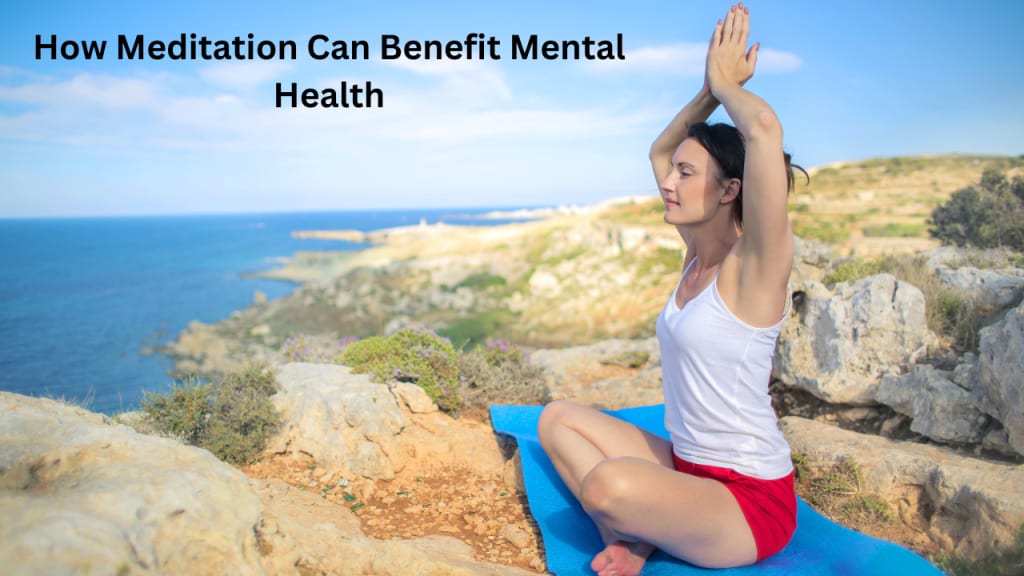
If you’re feeling anxious, stressed, or overwhelmed, it might be time to consider incorporating meditation into your daily routine. Meditation is a practice that involves training your mind to focus on the present moment, bringing calmness and relaxation to your body and mind. Research has shown that meditation can have a positive impact on mental health, including reducing symptoms of anxiety and depression, increasing emotional regulation, and improving overall well-being.
Getting Started with Meditation
The first step in establishing a daily meditation practice is to find a quiet, comfortable spot where you can sit and focus on your breath or other meditation techniques. You can choose any time of day that works best for you, whether it’s first thing in the morning or right before bed. Here are some different meditation techniques you can try:
Focusing on Breaths
One of the most common forms of meditation is focusing on your breaths. Sit in a comfortable position with your back straight and your hands resting on your knees. Close your eyes and take a deep breath in through your nose, counting to five. Hold it for a few seconds, then breathe out slowly through your mouth, counting to five as well. As you breathe, focus your mind on the sensation of the air moving in and out of your nostrils. If your mind starts to wander, simply bring it back to the breath.
Practicing Visualization
Visualization is another effective technique for meditation. Start by visualizing a peaceful and calm scene, such as a beach or a forest. Focus on the details of the scene, such as the colors, smells, and sounds. If your mind starts to wander, gently bring it back to the visualization.
Mantra Repetition
A mantra is a word or phrase that you repeat to yourself during meditation. Some popular mantras are “om,” “peace,” or “love and kindness.” Sit in a comfortable position and repeat your chosen mantra to yourself, either silently or out loud. As you repeat the mantra, let the sound resonate throughout your body and focus on its meaning.
Developing a Daily Meditation Practice
Once you’ve established a regular meditation practice, it’s important to start gradually increasing the amount of time you spend meditating. Start with just a few minutes a day, then gradually increase to 10 or 15 minutes. You can also set specific goals for your meditation practice, such as meditating daily for a week, or focusing on a different meditation technique each day. Holding yourself accountable and celebrating your successes can also help motivate you to continue meditating.
Overcoming Common Roadblocks
Starting a regular meditation practice can be challenging, especially if you’re new to the practice. Here are some common roadblocks you might encounter and tips for overcoming them:
Difficulty Concentrating
One of the biggest challenges when starting a meditation practice is quieting your mind and staying focused. If you find yourself easily distracted, try counting your breaths or focusing on an object, such as a candle flame or a sound.
Negative Self-Talk
Another common roadblock is negative self-talk, or the critical voice in your head that tells you that you’re not good enough or that you’re doing it wrong. To overcome negative self-talk, try repeating positive affirmations to yourself, such as “I am capable of meditating” or “I am worthy of this practice.”
Restlessness
It’s normal to feel restless or fidgety when you’re first starting a meditation practice, especially if you’re used to being constantly on-the-go. Try incorporating some intentional relaxation techniques, such as progressive muscle relaxation, before your meditation practice to help calm your body and mind.
Mindful Living
Practicing mindfulness outside of formal meditation can also have a positive impact on mental health. By paying attention to the present moment, noticing your thoughts and emotions, and intentionally relaxing your body, you can increase your overall sense of well-being. Here are some tips for incorporating mindfulness practices into your daily life:
Paying Attention to the Present Moment
Be aware of what you’re doing in the present moment, such as eating breakfast or walking to work. Focus on the sensations in your body and the sounds around you.
Noticing Thoughts and Emotions
Instead of getting lost in your thoughts or emotions, try to notice them as they come up. You can label them to help you acknowledge and process them.
Intentional Relaxation Techniques
Incorporate intentional relaxation techniques, such as yoga or deep breathing, into your daily routine to help promote relaxation and calmness.
The Benefits of Meditation for Mental Health
There are numerous benefits to meditation when it comes to mental health. Here are just a few:
Increased Emotional Regulation
Meditation can help regulate your emotions by teaching you to stay grounded in the present moment and acknowledge your thoughts and feelings without judgment.
Decreased Symptoms of Anxiety and Depression
Studies have shown that meditation can help alleviate symptoms of anxiety and depression by reducing stress and promoting relaxation.
Greater Self-Awareness
Through meditation, you can gain a better understanding of your thoughts and emotions, leading to a greater sense of self-awareness and self-compassion.
Improved Overall Well-Being
By promoting relaxation, reducing stress, and increasing emotional regulation, meditation can lead to improved overall well-being and quality of life.
Conclusion
Starting a daily meditation practice can have a significant impact on mental health. By finding a quiet space, selecting a meditation technique, and gradually increasing the amount of time you spend meditating, you can experience the numerous benefits that meditation offers. By incorporating mindfulness practices into your daily life, you can further promote relaxation and overall well-being. If you’re struggling with anxiety, stress, or other mental health challenges, meditation can be a powerful tool to help you find peace of mind.






Comments
There are no comments for this story
Be the first to respond and start the conversation.